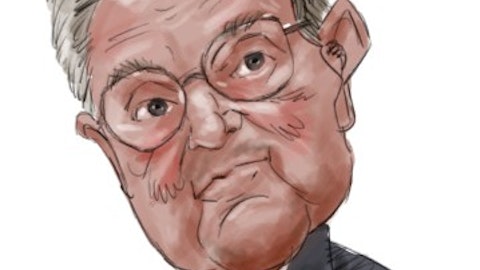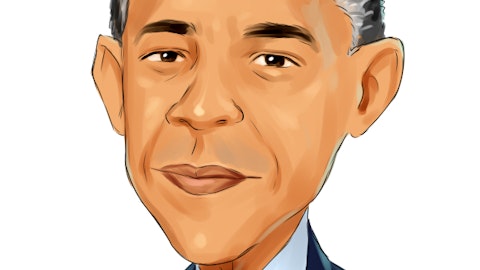
The detention of the ship was ordered on application to a court by Elliott Capital Management, which has bought up debt associated with bonds on which the Argentinian government defaulted in 2001. Paddy Crumlin stated: “The Ghana injunction comes at the urging of one of the worst international financial predators, Paul Singer, a US hedge fund billionaire who has made a vast fortune preying on countries and workers around the world, a fortune made partly by investing in anti-union companies.”
Hedge funds decline in October amid uncertainty (FTSEGlobalMarkets)
Hedge funds posted the first monthly decline in five months in October, as uncertainty over the outcome and impact of U.S. political elections and the ongoing European sovereign debt and banking crisis increased financial market volatility and further reduced investor risk tolerance. According to data released today by HFR, the HFRI Fund Weighted Composite Index declined by -0.5 percent. Positive performance across relative value arbitrage, equity hedge and event driven strategies were unable to offset declines across both discretionary and systematic macro strategies. Fixed income-based relative value arbitrage, event driven and equity hedge each posted their fifth consecutive month of gains, demonstrating effective tactical adjustment and risk hedging in an environment of declining U.S. equities and rising fixed income yields.
For Wall Street, it is time to mend fences with Barack Obama (IndiaTimes)
Del Frisco’s, an expensive steakhouse with floor-to-ceiling windows overlooking the Boston harbor, was a festive scene on Tuesday evening. Hedge fund billionaires Steven A. Cohen, Paul Singer and Daniel Loeb were among the titans of finance dining among the gray velvet banquettes there before heading several blocks away to what they hoped would be a victory party for their presidential candidate, Mitt Romney. The next morning was a cold, sobering one for these executives.
US pensions boosting Asia hedge fund exposure (AsianInvestor)
Equity long/short has traditionally been the strategy of choice for Asian hedge funds and investors, particularly wealthy individuals, but in recent years a shift has taken place. Global macro strategies are heading the pack when it comes to attracting capital, and US pensions are among the most aggressive in terms of raising allocations, notes Kier Boley, head of equity hedge investments for GAM’s multi-manager business. While risk appetite and investment duration has increased over the past couple of years, he adds: “What is frustrating for equity-hedge managers is that investors are buying fixed income, such as structured credit, but that demand hasn’t rolled into equities as it traditionally would do.”
Cantab hits capacity as it bucks trend (FT)
Cantab Capital Partners, the Cambridge-based hedge fund set up by an astrophysicist and former Goldman Sachs partner, is to stop accepting new money after its assets under management doubled this year to $4.5bn. The firm has bucked an industry trend that has seen some leading hedge fund operators step back, close down or take early retirement amid challenging trading conditions. Cantab – taken from the Latin name for Cambridge, Cantabrigia – was founded in 2007 by Ewan Kirk, an alumnus of the university and former head of Goldman’s quantitative trading operations, along with fellow Goldman employee Erich Schlaikjer.
Peltz Gives Danone Food for Thought (WSJ)
Nelson Peltz has a record of driving radical change at companies. At Cadbury’s, the U.S. activist investor’s attentions led to the U.K. confectioner’s breakup and eventual sale. Now, Mr. Peltz’s hedge fund, Trian Partners, has taken a 1% stake in Danone, BN.FR +1.52% valued at about €300 million ($384.5 million). Although Mr. Peltz is expected to take a softer approach with the French consumer-goods giant, it is easy to see why Danone has attracted his interest. Danone has managed average annual organic sales growth of 6.8% over the past seven years, but earnings growth has been a disappointing 3%, notes Credit Suisse CSGN.VX -0.23% . Similarly, returns on capital have averaged 6.7% over the past five years, held back by expensive acquisitions such as Dutch baby food maker Numico. That compares with 14.6% for rival Nestlé NESN.VX +0.50%.
Credit strategies dominate Lyxor hedge fund indices (Opalesque)
Nine Lyxor Strategy Indices out of 14 ended the month in positive territory, led by the Lyxor Long/Short Credit Arbitrage Index (+1.7%), the Convertible Arbitrage Index (+0.5%), and the Distressed Index (+0.6%). The Lyxor Hedge Fund Index declined 0.6% in October (+1.6% in 2012 to date). Earnings season dominated news flow during the month of October. Earnings, as usual, generally beat expectations, but revenues and forward guidance disappointed investors. Fundamental news therefore drove most stock returns more than rumors about political deals did. Markets turned more pessimistic on growth mid-month and declined, but European equity markets managed to hold onto gains even as US markets ended in the red.
Argentina: no reprieve from vulture bondholders (FT)
While most Americans were queuing to cast their votes in the US presidential election, lawyers working for Elliott Associates were filing a request for a New York court judge to expedite its ruling against Argentina, the hedge fund’s nemesis. Investors who still hold Argentina’s defaulted debt include thousands of Italian retail investors, but Elliott and Aurelius Capital – another hedge fund set up by a former Elliott executive – have been the most aggressive in chasing Buenos Aires through the courts.
The Tragedy of the “Smart” Money (DailyFinance)
Imagine a PGA Tour where the average player is no better at golf than the viewers at home. Or an NBA where most players never make a basket throughout their careers. Or a NASCAR where most drivers can’t top the 65 mph speed limit of public freeways. You’d be insulted and would never pay attention to these “pros.” But this is essentially what the universe of professional hedge fund managers looks like. The average hedge fund is up 2.15% year to date, according to Hedge Fund Research. A basic S&P 500 (INDEX: ^GSPC) index fund gained 12.5% during that time. That isn’t a fluke, either: …A thousand dollars invested in HFR’s group of global hedge funds in 2005 would be worth $997 today, while the same amount invested in a simple S&P 500 index fund would be worth $1,346. This is comparable to a group of NBA teams playing a local high-school basketball team for seven years straight and scoring a third fewer points. It’s impressively bad.
York Capital’s Multi Strategy Fund Returns 1.3% in October (ValueWalk)
James Dinan’s York Capital Management had an overall good October. As we reporter earlier, as of the end of September, the total firm wide assets were close to $14.3 billion. York Capital’s long/short hedge fund strategy is applied by the York Total Return Fund, which manages $1.5 billion in assets. The fund accumulated another $100 million in assets in October. The returns in the last month were up by 1.8 percent, while the year to date performance has been +10.8 percent. York’s largest Multi Strategy fund has $5.1 billion worth of assets under management. The strategy was up in the range of 1.3 percent last month, while the year to date performance has been around 9 percent. The strategy is usually based on investing in the debt and equity of companies that are on the verge of a major structural changes, like spinoffs, mergers, etc.
London Firm Launches New Fund (HedgeFund)
RWC announced Wednesday that it has it will be launching a new Cayman Fund with a European activist strategy. The London-based hedge fund firm said in a press release that the fund will be managed by a team that recently joined from Hermes Fund Managers after Hermes sold its activist asset management arm to RWC in September. The new fund’s strategy has a capacity of up to $1 billion and the fund will take the form of a Cayman master-feeder fund. RWC currently has $5 billion in assets under management.
Brunnerinvest Reveals Secrets of Hedge Funds in World Finance (Melodika)
Smart diversification of portfolios is the key to success of fund of hedge funds (FoHFs), says Erwin Brunner. Speaking in the November-December edition of World Finance, the CEO of BrunnerInvest outlines how the firm’s strategic FoHF have made the best of a tough market. The hedge fund industry has changed significantly since markets collapsed, with the returns of both single funds and fund of hedge funds reduced by adverse market conditions. Yet the market has remained robust, with an estimated CHF 2,000bn invested across the fund universe. A recent report by KPMG and the AIMA reported that hedge funds have delivered greater investment returns than investments made in global equities, bonds and commodities.
Mixed Results for HF-Supported Ballot Measures (HedgeFund)
California hedge fund managers with a vested interest in various initiatives on the state’s ballot on Election Day were either pleased or disappointed with the results. Ballot measure Proposition 30, which would increase taxes for four years on earnings over $250,000 to fund education, was approved by a 54%-46% margin, according to election figures posted on the California Secretary of State’s website. eVestment|HFN reported last week that a political action committee opposed to Prop. 30 received $1.1 million from William Oberndorf, the co-founder of hedge fund and private equity fIrm SPO Partners, while his business partner John Scully donated $500,000 to the committee.
Hedge Fund Bets Against Daily Mail (Express)
Shares in nearly 150 companies are on the list of those being shorted by more than 50 funds and disclosed by the Financial Services Authority under new EU rules that came into effect on November 1. The bets, amounting to hundreds of millions of pounds, are spread across a wide range of industries and include firms such as builder Barratt Developments Plc (LON:BDEV), online grocer Ocado Group PLC (LON:OCDO), web retailer Asos, insurer Admiral, Marks & Spencer and bookmaker William Hill. The usually secretive hedge funds, which seek to make money whether markets go up or down, bet on shares falling by shorting in which they borrow shares and sell them in the hope of buying them back at a lower price and pocketing the difference.
Forefront to launch first product (LiveMint)
Forefront Alternative Investment Trust, India’s first local hedge fund, will start road shows in two months to raise money and may start investing with a small corpus. Mumbai-based Forefront plans to target wealthy individuals and corporations as investors in its proposed fund. “We will start with a small hedge-fund product and let people see it get off the ground,” said Radhika Gupta, founding principal of Forefront Capital Management Pvt. Ltd, which will launch the fund. “Hedge funds can operate with a Rs.20 crore corpus, depending on whether they are closed ended or open ended.”
Regulation fatigue hits hedge funds as institutional investors fail to see how new laws will benefit them (HedgeFundsReview)
Increasing numbers of institutional investors fail to see how hedge fund regulations will benefit them or protect their interests, according to research by Ernst & Young. A substantial majority (85%) of investors think current regulations will not prevent the next crisis, according to the Global Hedge Fund and Investor Survey 2012. Only 10% of investors think regulations will protect their interests while 49% say they will be ineffective in this respect.
Stockholm Hedge Fund Choose PortwareFX (WallStreetAndTech)
Stockholm-based hedge fund Informed Portfolio Management (IPM) has deployed Portware’s FX trading platform, Portware FX, to drive its global FX trading operations. The fund, with about $7 billion in assets under management, is a systematic macro and equity manager offering diversified portfolio solutions to institutional investors globally. Among the reasons it selected Portware FX were for its advanced customizability, flexible system architecture and trading functionality, as well as the ability to integrate with ease into the firm’s internal software for FX executions and maximizing alpha.
Dealbreaker Story of the Week – Hotel Off The Hook For Hedge Fund Investor Relations Girl’s Dance Of Near Death (BreakingMedia)
Remember Christine Mancision? To recap, she’s the hedge fund investor relations lady who, back in October 2009, sued both the Hyatt Morristown and James Graeber, for an incident that took place on the evening of November 22, 2008, that incident being Graeber approaching her on the dance floor of his sister’s wedding, grabbing her arm, taking her for a spin, and then “flinging” her off to the side, causing Mancision to make a hard crash landing on her wrist, which was “bent the complete opposite way” when she stood up. Her injuries were so extensive that they required surgery, a metal plate and three screws (as well as “eight months of grueling rehabilitation”) and while she blames Graeber first and foremost, she also believes the Hyatt played a part in overserving the guy when he was, she says, “visibly intoxicated,” and therefore added “fuel to the fire” in Graeber’s dancing feet.
George Soros Enmeshed in Bribery Scandal (FrontPageMag)
Billionaire financier George Soros has enmeshed himself in a growing bribery scandal in the West African country of Guinea. A government committee backed by Soros is investigating Beny Steinmetz Group Resources (BSGR), the mining component of Israeli billionaire Beny Steinmetz’s business empire. The government is probing how BSRG won rights to develop iron ore mining blocks in the Simandou region of the nation. In turn, the company has accused the government of Guinea of seeking to “illegally seize” its assets.
Why Faber thinks Obama win is a disaster for business (FirstPost)
Did the global markets really price in a Barack Obama win? Investment guru and publisher of the Gloom, Boom & Doom report, Marc Faber thinks not. According to him, Wednesday’s huge sell-off can be easily attributed to the president’s re-election, all thanks to his tax policies, the impending “fiscal cliff” and the current slow recovery. And it is precisely because of this he said the re-election of Obama is a disaster not just for that country but for business and stocks in general. …In an interview with Bloomberg UTV, Faber said that Obama’s economic policies are not very good for economic expansion since it means more debt, higher taxes and more printing of money. Moreover, since most Wall Street investors were betting on a Romney win largely because of his plan to cut taxes on capital gains and dividend, Obama’s re-election surprised many investors and heightened the concerns over fiscal cliff.




